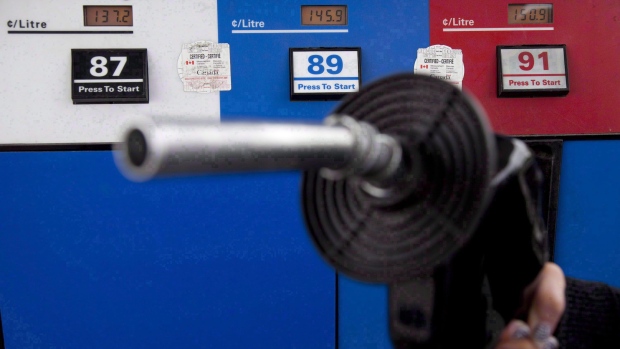Mar 22, 2019
Inflation edges up, but underlying pressures soften
, Bloomberg News

Canada’s annual inflation ticked up a notch from 15-month lows as gasoline prices rose for the first time in more than half a year, though data released Friday continued to show a benign environment for price pressures.
The consumer price index was up 1.5 per cent in February from a year earlier, Statistics Canada said Friday from Ottawa. Economists had predicted inflation would remain unchanged at 1.4 per cent. Core measures — seen as a better gauge of underlying price pressures — dropped slightly to 1.83 per cent from 1.87 per cent.
The numbers suggest a relatively soft picture for inflation, consistent with an economy that is in the middle of a slowdown with enough slack to limit any price pressures that could be a source of concern for the Bank of Canada. Separate data released Friday showing retail sales unexpectedly declined in January reinforced the economic weakness.
Canada’s central bank anticipates inflation will remain below its two-per-cent target for most of this year, one reason why it’s unlikely to be in any hurry to lift borrowing costs any further from current levels. In fact, markets have started to price in a possible rate cut.
On a monthly basis, consumer prices rose 0.7 per cent, more than the 0.6-per-cent gain expected by analysts. The monthly gain was driven by higher prices for travel tours and cars.
Gasoline prices also gained 1.9 per cent during the month, the first increase since July. They have fallen 21 per cent since then.
There are few signs of any inflationary pressure in the report. Inflation in the service sector was down to 2.3 per cent in February, from 2.7 per cent the previous month. Excluding gasoline, consumer price inflation was 2.1 per cent in February, unchanged from the previous month.
Food has been a major driver of inflation gains over the past year. Excluding food prices however, inflation would be just 1.2 percent.
OTHER CPI HIGHLIGHTS
Seasonally adjusted, consumer prices were up 0.3 per cent in February, after a 0.1-per-cent decline in January
Two of the three measures of core inflation were unchanged: the median rate at 1.8 per cent and the trim rate at 1.9 per cent. The common rate dropped to 1.8 per cent, from 1.9 per cent.
With assistance from Erik Hertzberg